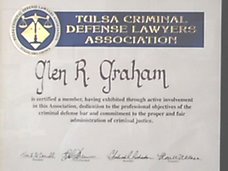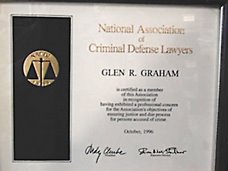Subject: Fw: Champion magazine says trial not a search for truth......
http://www.nacdl.org/public.nsf/01c1e7698280d20385256d0b00789923/1bae7a30ad4ad3a785256fa3006a3662?OpenDocument
Champion Magazine proposes some additional criminal jury instructions:
Sample Instruction # 1:Even if you are uncertain whether or not [the defense evidence] [the testimony of a defense witness] is truthful in whole or part, you are not obligated to convict. If, after considering all the evidence, the defense evidence [or any part of it] leaves you with a reasonable doubt as to any element of the charge you must vote to acquit. On the other hand, if you are uncertain whether or not to believe a prosecution witness whose testimony is essential to the proof of any element of the charge, you must vote to acquit.
Sample Instruction # 2:The defense is not obligated to prove the truth of its evidence. Instead the prosecution must prove that its evidence is sufficiently credible, when considered in light of the defense evidence, to prove every element of the charge beyond a reasonable doubt.
Sample Instruction # 3:The defense has no burden to prove the truthfulness or credibility of defense witnesses and/or the falsity or lack of credibility of the prosecution’s witnesses. Instead, the prosecution has the burden of proving that the evidence is sufficiently credible to prove every element of the charge beyond a reasonable doubt. If, after considering all the evidence, any juror who has a reasonable doubt as to any [essential fact] [element of the charge] must give the defendant the benefit of that doubt and vote to acquit.
Sample Instruction # 4:If you are uncertain whether or not to believe a prosecution witness whose testimony is essential to the proof of any element of the charge, you must vote to acquit.
Such instructions should also incorporate the well established principle that witness credibility is not necessarily an all-or-nothing preposition and that some portions of the testimony of a witness may be given more or less weight than others. (See e.g, O’Malley, Grenig, & Lee, Federal Jury Practice and Instructions, 15.01 [Credibility Of Witnesses — Generally] (West, 5th ed. 2000); see also 1st Circuit Pattern Jury Instructions — Criminal 1.06 [Credibility Of Witnesses] (1998); 6th Circuit Pattern Jury Instructions — Criminal 1.07 [Credibility of Witnesses](1991); 8th Circuit Model Jury Instructions — Criminal 1.05 [Credibility Of Witness] (2000); 9th Circuit Model Jury Instructions — Criminal 1.7 [Ruling Of Objections] (2000); 11th Circuit Pattern Jury Instructions — Criminal Basic 5 [Credibility of Witnesses] ¶ 1 (1997); Iowa Criminal Jury Instructions 100.5 [Evidence] (Iowa State Bar Association, 1991); Ohio Jury Instructions, Volume 4 — Criminal, 4 OJI 405.20, [Credibility] ¶ 4 (Anderson, 2000).)
As a legal principle the presumption of innocence is straight forward: The prosecution has the burden of proving every essential fact beyond a reasonable doubt and the defendant has no burden to produce any evidence at all. (In re Winship (1970) 397 U.S. 358 [90 S.Ct. 1068, 25 L.Ed.2d 368]; U.S. v. Maccini (1st Cir. 1983) 721 F.2d 840.) However, in practice this hallowed principle may be counter-intuitive to jurors who are naturally prone to view their role as seeking “the truth.” Therefore it is important for the jury instructions to assure the jurors understand that “. . . the question in a criminal case is not whether the defendant committed the acts of which he is accused. The question is whether the Government has carried its burden to prove its allegations . . . .” (Mitchell v. U.S. (1999) 526 U.S. 314, 328 [119 S.Ct. 1307; 143 L.Ed.2d 424].) In other words, the instructions should avoid language that perpetuates the juror’s intuitive inclination to make the trial a search for the truth.
Criminal Trial Not Search for Truth but Whether Beyond Reasonable Doubt Government Has Met Burden of Proof - Weight of Evidence
Subscribe to:
Post Comments (Atom)






No comments:
Post a Comment